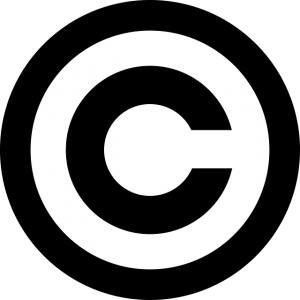3 Problems With Current Copyright Laws

 In the constitution, the founding fathers gave the government the power “To promote the Progress of Science and useful Arts, by securing for limited Times to Authors and Inventors the exclusive Right to their respective Writings and Discoveries.” At first, copyright terms lasted for 14 years, with an optional 14 year renewal. Today, however, copyright lasts for the creator’s lifetime plus seventy years.
In the constitution, the founding fathers gave the government the power “To promote the Progress of Science and useful Arts, by securing for limited Times to Authors and Inventors the exclusive Right to their respective Writings and Discoveries.” At first, copyright terms lasted for 14 years, with an optional 14 year renewal. Today, however, copyright lasts for the creator’s lifetime plus seventy years.
Copyright laws, like the majority of government, have probably extended beyond the original vision of the founding fathers. In the digital age it has become easy to pirate content, and congress has responded by attempting to make it more difficult. Their laws, it seems, may have not worked as intended. Here are three specific problems with our current copyright laws:
1. Suspected pirates are guilty until proven innocent.
Currently, under the Digital Millennium Copyright Act (the DMCA), if someone claims that your content, on youtube for example, infringes on their rights as a producer, the host, youtube, would have to take that content down immediately. Instead of an investigation taking place to determine whether you have actually violated copyright laws, the site must immediately assume that you are guilty and remove your content. It is then up to you to file a counter DMCA claim in order to get your content put back up.
“Today, websites and ISPs have to block or remove infringing material whenever they receive a DMCA takedown notice from a copyright holder. The figures suggest that this happens more often than is justified. Google reckons that more than a third of the DMCA notices it has received over the years have turned out to be bogus copyright claims. More than half were from companies trying to restrict the activities of rival firms rather than lawbreakers.” (Economist, 2012)
This whole idea is wrong in its outlook. It assumes that you are guilty until you are proven innocent. Furthermore, this law is being used to hinder competition. So both the law’s basic outlook and the law’s ability to be twisted make it rather counter productive.
2. Ridiculous requirements for technology.
The DMCA has many ridiculous requirements, such as the requirement that forces organizations for the blind to go to D.C. every few years to explain that they still can’t read print, and that they need an exemption from the law so that books can be read aloud to them.
“The DMCA leaves it up to the Librarian of Congress (LOC) to issue exemptions from the law, exceptions that were recognized to be necessary given the broad language of the statute that swept a number of ordinary acts and technologies as potential DMCA circumvention violations.
“Every three years groups like the American Foundation for the Blind have to lobby Congress to protect an exception for the blind allowing for books to be read aloud. Can you imagine a more ridiculous regulation than one that requires a lobby group for the blind to come to Capitol Hill every three years to explain that the blind still can’t read books on their own and therefore need this exception?” (The Atlantic, 2013)
Additionally, this law makes it illegal for you to switch phone carriers after your contract has expired. Instead of realizing that your phone is your’s, and that after your contract has ended you should be able do whatever you want with it, the DMCA makes it illegal for you to switch from Verizon, for example, to AT&T.
3. Insane term limits.
If I were to copyright a book, I would own it for my lifetime plus seventy years. It would most likely be well over one hundred years before my book would be open to the public domain and accessible to everyone. I can see why I might should own the copyright for twenty or thirty years, but anything beyond that seems excessive.
Copyright laws are not perfect, they have a lot of issues. Hopefully we will see some change for the better in the future, and some of these problems may be fixed. Here’s to hoping!
Discussion — No responses